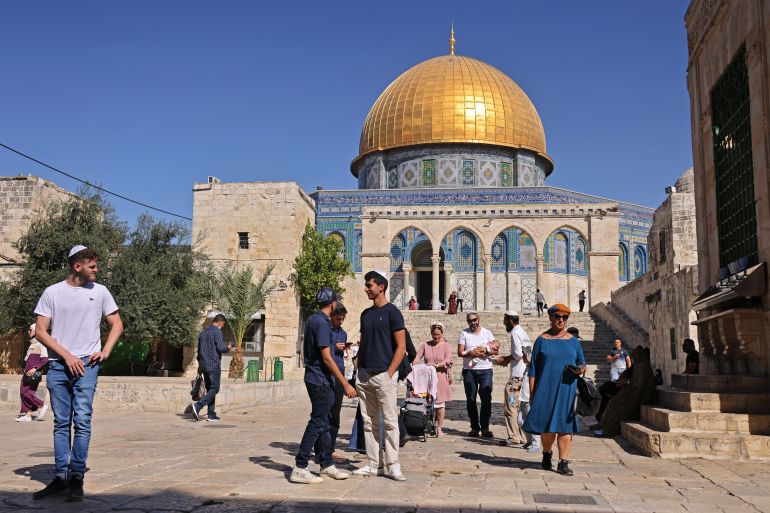Israeli judge upholds ban on Jewish prayer at Al-Aqsa compound
An Israeli rabbi’s prayer at holy site was ‘overt’, Israeli court rules, overturning lower court’s decision.

An Israeli court has upheld a ban on Jewish prayer at Jerusalem’s Al-Aqsa Mosque compound, overturning a lower court’s decision that had sparked fury among Palestinians and the Muslim world.
Aryeh Lippo, an Israeli rabbi, was slapped with a two-week ban from the compound last month after praying there, but a Jerusalem court on Tuesday struck down the move, saying Lippo’s whispered prayer did “not violate police instructions”.
Keep reading
list of 4 itemsBacked by Israeli police, Jewish settlers enter Al-Aqsa compound
Occupied East Jerusalem: Forced expulsions and raids on Al-Aqsa
World reacts after Israeli forces wound hundreds in Al-Aqsa raid
Jews are allowed to visit the site but may not pray or engage in rituals there.
Palestinians denounced on Thursday the decision by the Israeli court, which upends a long-standing agreement whereby Muslims worship at Al-Aqsa – Islam’s third holiest site – while Jews worship at the nearby Western Wall.
Israeli police had appealed Tuesday’s lower court decision, and Jerusalem District Court Judge Aryeh Romanoff on Friday upheld the ban, saying officers had acted “within reason”.
“The fact that there was someone who observed [Lippo] pray is evidence that his prayer was overt,” Romanoff wrote. “I restore the decision of the police commander.”
Palestinians, as well as officials in Jordan, Egypt and Saudi Arabia had condemned the lower court’s decision.
Sacred to Muslims as a holy site in Islam and revered by Jews as the location of two ancient temples, the mosque and its surrounding plaza have long been flashpoints in the Israeli-Palestinian conflict.
Israel captured East Jerusalem including the mosque in 1967, but Jordan is the custodian of Islamic sites in the city.
No Israeli law prohibits Jewish prayer at the Al-Aqsa compound, but since 1967, Israeli authorities have enforced a ban to prevent tensions.
In a statement in favour of the police ban on Friday, Israel’s Public Security Minister Omer Bar-Lev had warned that a change in the status quo would “endanger the public peace”.